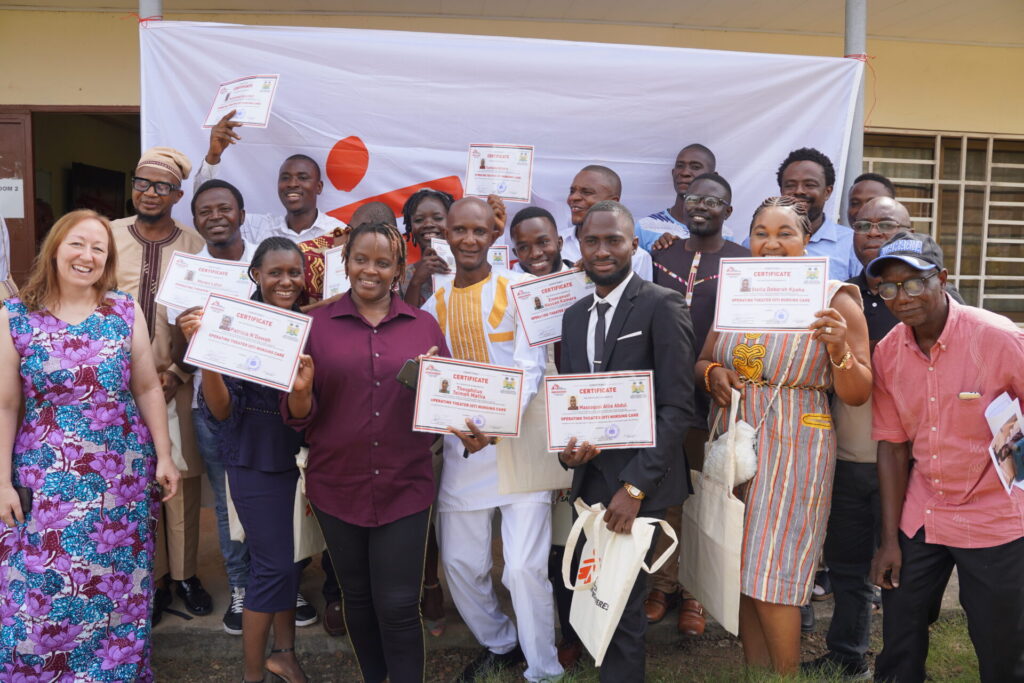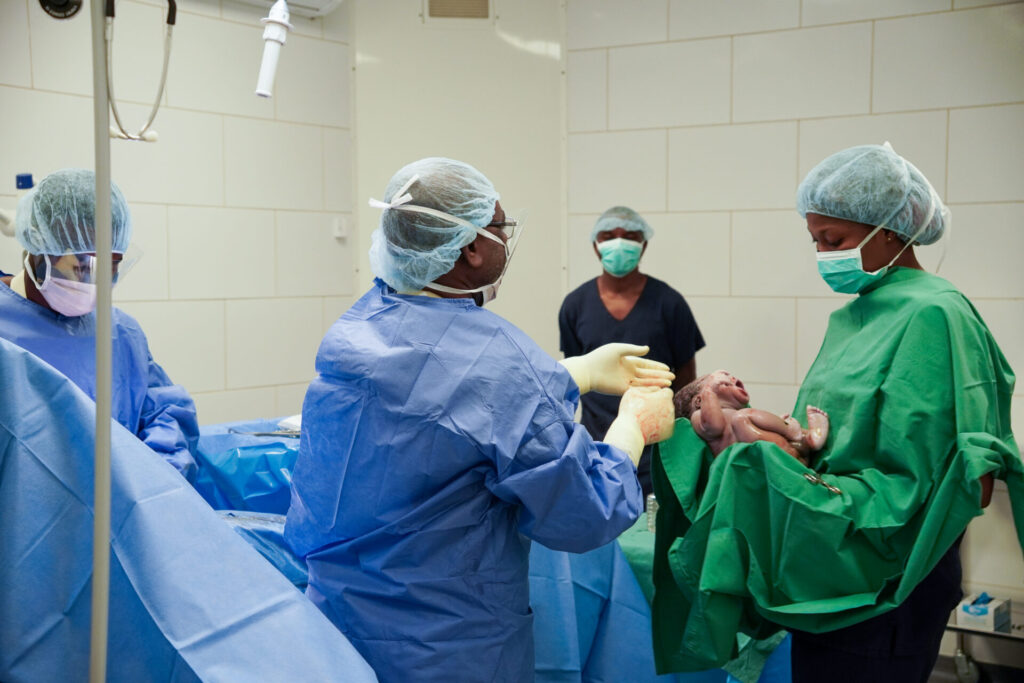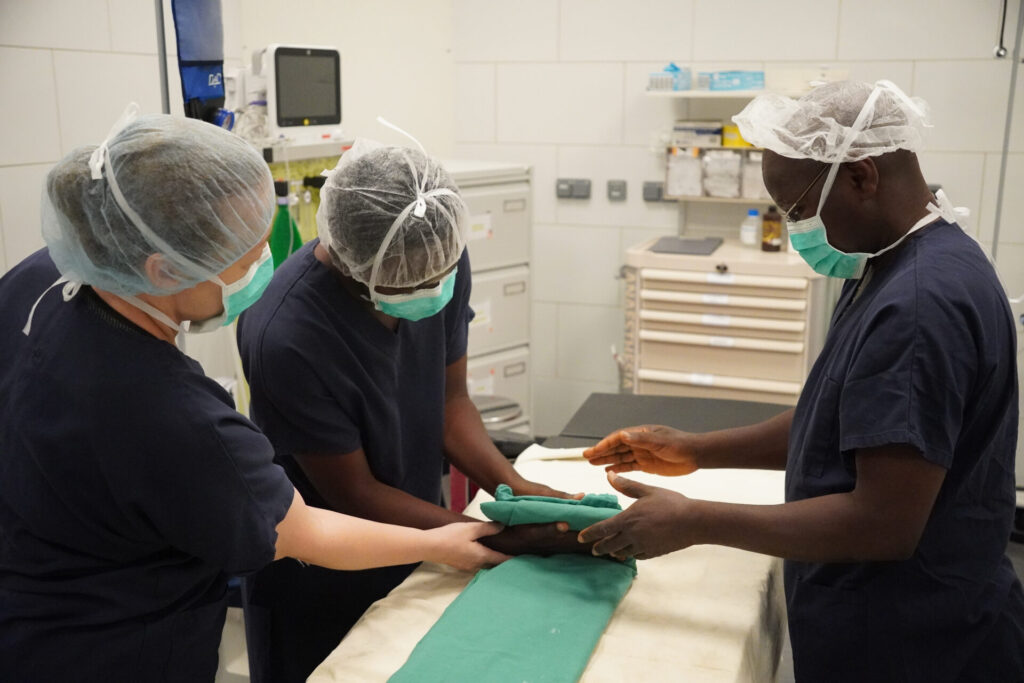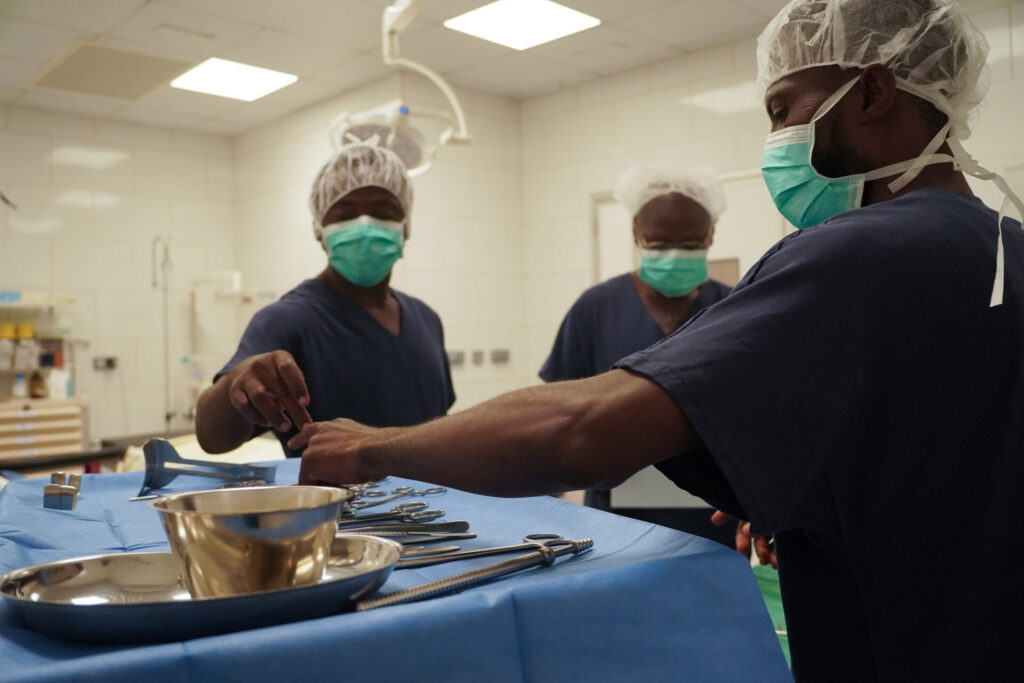Fourteen MSF operating theatre nurses in Kenema, Sierra Leone, have graduated from a specialised training programme organised by the MSF Academy for Healthcare. The Operating Theatre nursing care training programme is the sole certification training programme in the country specifically targeted to operating theatre nurses, which addresses a critical need in Sierra Leone’s healthcare services.
The graduation ceremony was held in the presence of representatives from the District Medical Officer, the District Health Sister, the Nurses and Midwives Board of the Ministry of Health, representatives of the Eastern Technical University, Njala University, and the Kenema Government Hospital (KGH). Upon successful validation of all competencies outlined in the curriculum, the participants were awarded competency certificates jointly signed by the Nurses and Midwives Board of the Ministry of Health of Sierra Leone and the MSF Academy for Healthcare.

Over the course of ten months of continuous professional development, the nurses engaged in training activities at the workplace including theoretical and practical sessions, as well as clinical mentoring sessions within the operating theatre. This approach enabled them to improve the competencies specifically needed as Operating Theatre nurses, empowering them to apply their new skills directly in their work environment. “The new things that I learnt have given me more passion for the job, the easy way how to manage my OT, how to avoid problems in the OT” said Sumaila Amara, one of the graduates.
Most of the participants had already completed the Basic Clinical Nursing Care (BCNC) training programme, also offered by the MSF Academy for Healthcare, which focuses on basic competencies for nursing staff. The Operating Theatre nursing care programme built upon that previous training, providing advanced training tailored to the specific activities of their role. For those who had not undergone the Basic Clinical Nursing Care programme, an adapted curriculum incorporating some prerequisite BCNC units was designed.

During the graduation, Alberto Martínez Polis, the Project Medical Referent, gave special recognition in his speech to the programme clinical mentor “for overseeing this programme from the beginning to the end, do feel proud and happy of what you, together with your great team, have accomplished, contributing significantly to MSF’s social mission of alleviating suffering and saving, in this case, maternal lives”.
Do feel proud and happy of what you have accomplished, contributing significantly to MSF’s social mission of alleviating suffering and saving, in this case, maternal lives
Alberto Martínez Polis, Project medical referent
Throughout the programme, the clinical mentor used one-on-one instruction with the learners in the operating theatre. Through interactive sessions, simulation training in the operating theatre, and real-world coaching and debriefing, the learners dramatically improved their technical skills. The curriculum was structured around four main areas: preparation for surgery, infection prevention and control specific to the operating theatre, operating theatre nursing care, and diagnostics processes in the operating theatre.


Assessment of learners’ progress revealed remarkable improvement across all the competencies. Notably, the rate of correctly performed skills related to patient safety surged from 59% in the entry assessment to 97% in the exit assessment. Similar improvements were observed in surgical procedures (43% to 97%), infection prevention and control (57% to 84%), and communication with patients and staff (64% to 91%). Furthermore, the disparities in knowledge and skills among the participants decreased, which means that there is a more standardised and equal level of competency among the staff.
Katarina Madejova, the clinical mentor, remarked that “the motivation and engagement of the learners remained consistently high throughout the programme. Not only did they actively seek to expand their own knowledge, but they also took on the role of sharing their learnings with their peers. They are now the only people in the country with this specialised certification, and I hope that wherever they are they will continue having the interest to maintain high standards and continue their professional growth”. One of the main objectives of this training programme is to improve the quality of care provided to the patients and to reinforce Sierra Leone’s healthcare system through capacity building of healthcare providers.
